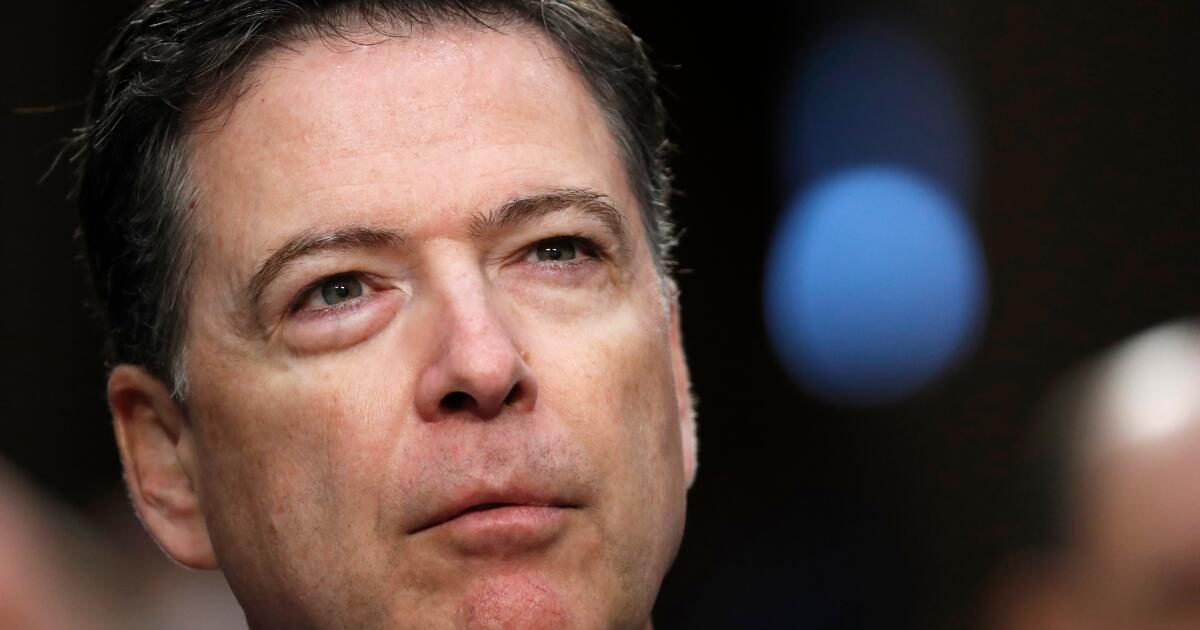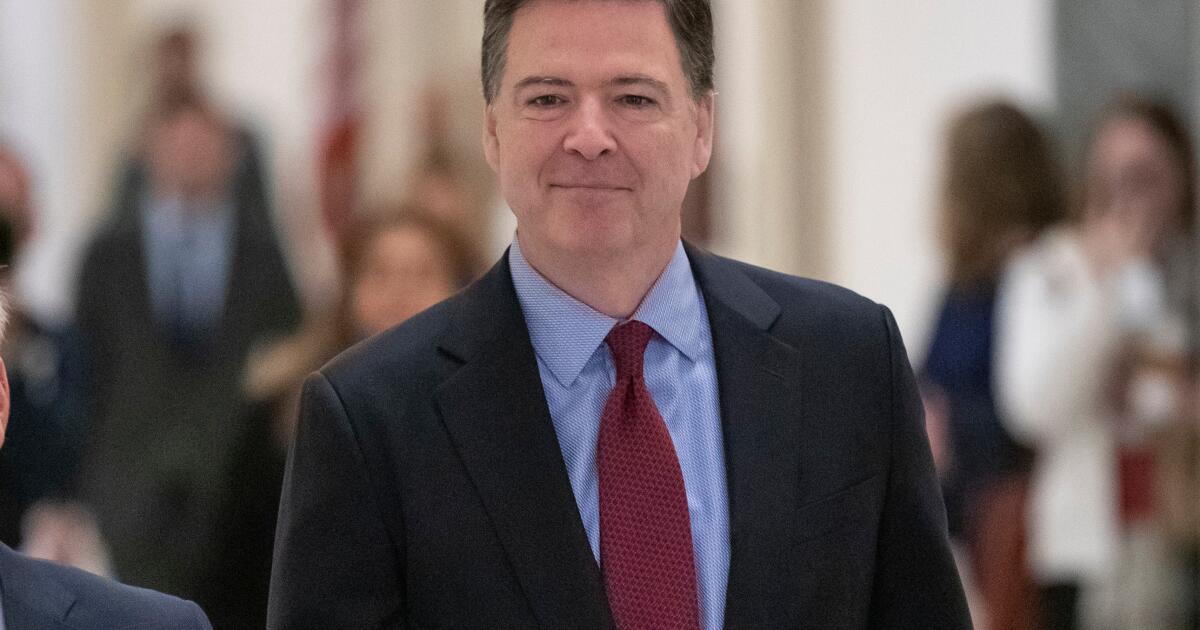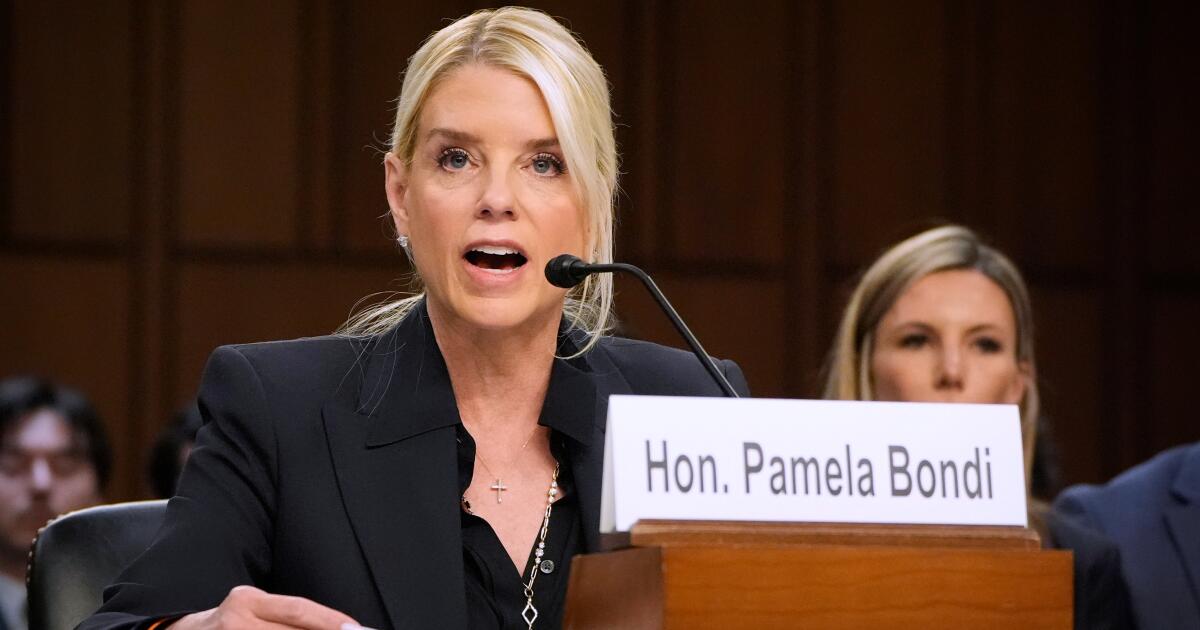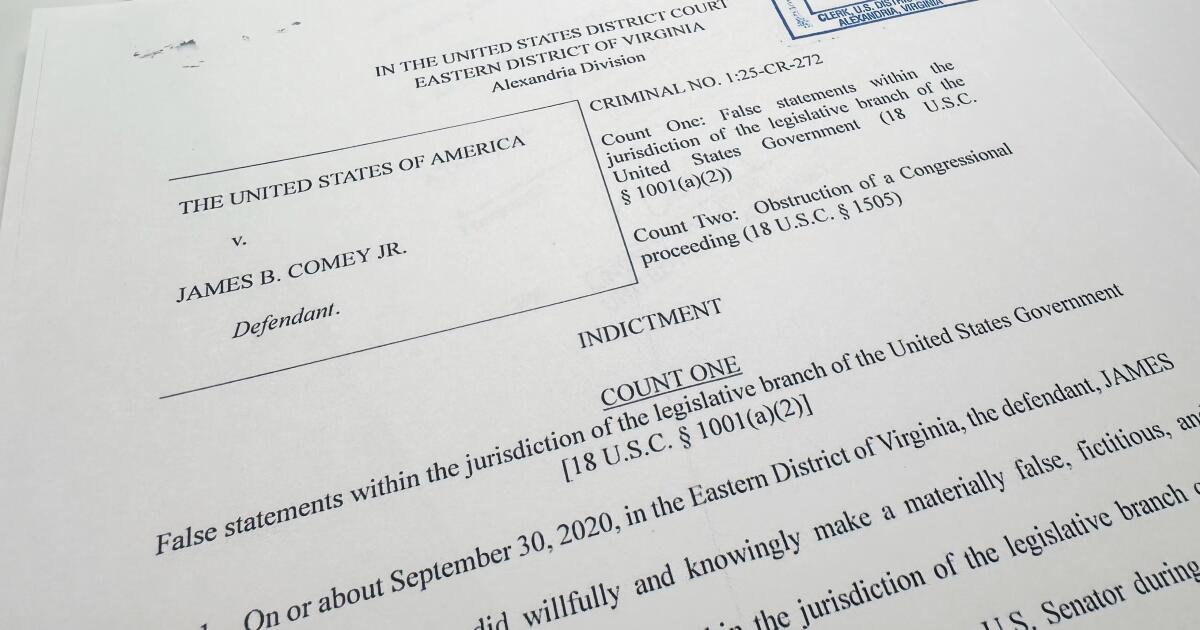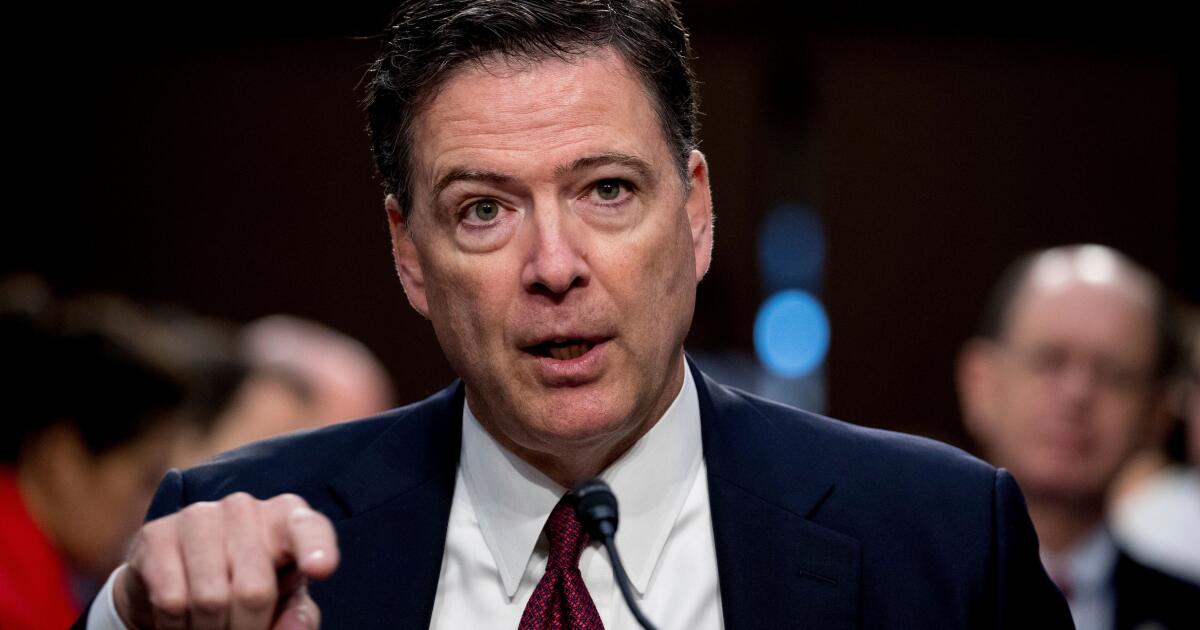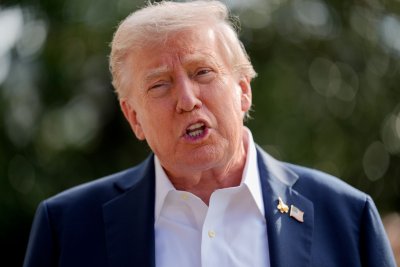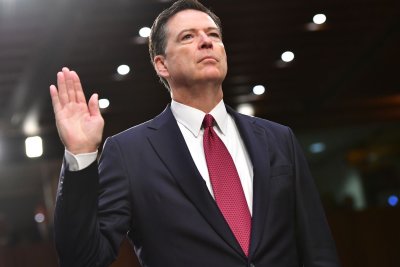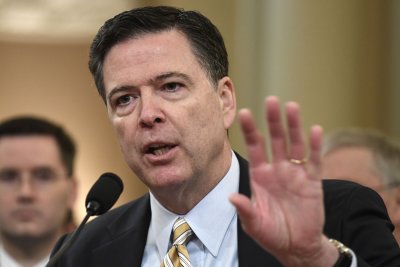WASHINGTON — On a Phoenix tarmac in 2016, former President Clinton and U.S. Atty. Gen. Loretta Lynch had a serendipitous meeting on a private jet. The exchange caused a political firestorm. At a time when the Justice Department was investigating Hillary Clinton, the Democratic nominee for president, the appearance of impropriety prompted a national scandal.
“Lynch made law enforcement decisions for political purposes,” Donald Trump, her Republican rival that year, would later write of the meeting on Twitter. “Totally illegal!”
It was the beginning of a pattern from Trump claiming political interference by Democrats and career public servants in Justice Department matters, regardless of the evidence.
Now, Trump’s years-long claim that it was his opponents who politicized the justice system has become the basis for the most aggressive spree of political prosecutions in modern American history.
“What Trump is doing now with the U.S. attorneys is really in complete opposition to how the people who created those offices imagined what those officials would do — the Founders simply did not envision the office in this way,” said Peter Kastor, chair of the history department at Washington University in St. Louis.
“From the inception of the Justice Department,” he added, “one of the most remarkable things is how it was never used in this way.”
On Thursday, at Trump’s express direction, federal charges were filed against James Comey, the former FBI director, alleging he gave false testimony before Congress and attempted to obstruct a congressional proceeding five years ago.
The indictment was secured from a federal grand jury after Trump fired a U.S. attorney with doubts about the strength of the case — replacing him with a loyalist, and telling Atty. Gen. Pam Bondi openly on social media to pursue charges against him and others.
“JAMES COMEY IS A DIRTY COP,” Trump wrote on social media after the charges were filed. “MAKE AMERICA GREAT AGAIN!”
Comey, who was fired by Trump in 2017, denies the charges.
“My family and I have known for years that there are costs to standing up to Donald Trump, but we couldn’t imagine ourselves living any other way,” Comey said in a statement posted online. “We will not live on our knees, and you shouldn’t either.
“My heart is broken for the Department of Justice. But I have great confidence in the federal judicial system,” Comey continued. “And I’m innocent. So let’s have a trial and keep the faith.”
Behind the charges against Comey, legal experts see a weak case wielded as a cudgel in a political persecution of Trump’s perceived enemy. Comey is accused of lying about authorizing a leak to the media about an FBI investigation through an anonymous source.
It is only the latest example. Over the summer, Trump’s director of the Federal Housing Finance Agency, Bill Pulte, used his position to accuse three of the president’s political foes of mortgage fraud, referring the cases to the Justice Department for potential charges — actions actively encouraged by Trump online.
“It’s not a list,” Trump said Thursday, asked whether more prosecutions are coming. “I think there will be others. They’re corrupt. These were corrupt radical left Democrats. Comey essentially was Dem — he’s worse than a Democrat.”
The president’s overt use of the Justice Department as a partisan tool threatens a new era of political persecutions that could well backfire on his own allies. The Supreme Court has made clear that presidents enjoy broad immunity for their actions while in office. But their aides do not. Bondi, Pulte and others, just like Comey, are obligated to provide occasional testimony to House and Senate committees under oath.
“The Comey indictment is notable for its personalized politicization being so open,” said Andrew Rudalevige, a professor of government at Bowdoin College. “The same actions carried out clandestinely would seem scandalous, because they are — and the fact they were so blatantly advertised does not make them less corrupt.”
But the Comey case can also be seen as a test of the viability of a prosecution based purely on politics. Already, lawyers for Trump’s other legal targets have said they plan on using his overt threats against them to get cases against their clients thrown out in court.
This week, Karoline Leavitt, the White House press secretary, defended Trump’s vocal advocacy for criminal charges against political foes as a matter of “accountability.”
“We are not going to tolerate gaslighting from anyone in the media, from anyone on the other side who is trying to say that it’s the president who is weaponizing the DOJ,” Leavitt said.
“You look at people like [California Sen.] Adam Schiff, and like James Comey, and like [New York Atty. Gen.] Letitia James, who the president is rightfully frustrated with,” she continued. “He wants accountability for these corrupt fraudsters who abused their power, who abused their oath of office to target the former president.”
But Trump’s accusations against Democrats have routinely failed the tests of inspectors general, journalistic inquiry and public scrutiny.
When Trump was investigated over potential coordination between his campaign and the Russian government in the 2016 race, he claimed a liberal, “deep state” cabal was behind an inquiry based on, as the special prosecutor’s report concluded, “numerous links between the Russian government and the Trump campaign.”
And when charged with federal crimes over his handling of highly classified material, and his effort to overturn the results of the 2020 presidential election, he dismissed the charges as a witch hunt choreographed by President Biden and his attorney general, a claim that had no basis in fact.
The special counsel investigations against Trump, Kastor said, were “prosecutions, not persecutions.”
“His claims that the investigations surrounding him are specious — the investigations were appropriate,” Kastor added. “These investigations are not.”
